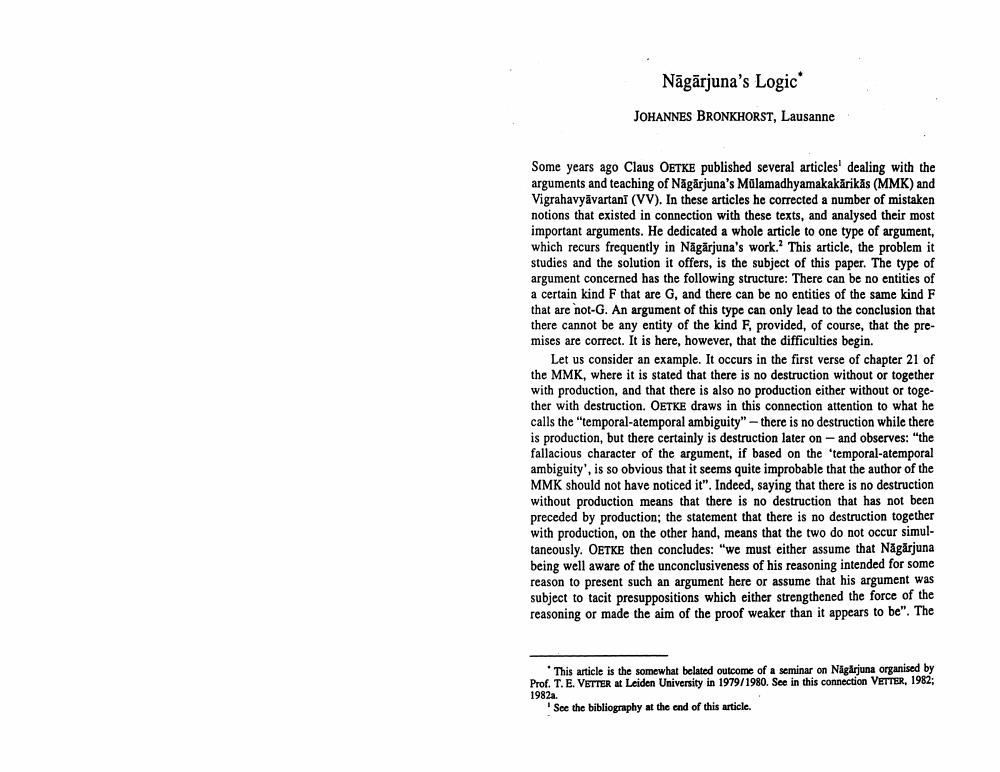Book Title: Nagarjuna Logic Author(s): Johannes Bronkhorst Publisher: Johannes Bronkhorst View full book textPage 1
________________ Nāgārjuna's Logic JOHANNES BRONKHORST, Lausanne Some years ago Claus OETKE published several articles' dealing with the arguments and teaching of Nagarjuna's Mülamadhyamakakärikas (MMK) and Vigrahavyāvartani (VV). In these articles he corrected a number of mistaken notions that existed in connection with these texts, and analysed their most important arguments. He dedicated a whole article to one type of argument, which recurs frequently in Năgărjuna's work. This article, the problem it studies and the solution it offers, is the subject of this paper. The type of argument concerned has the following structure: There can be no entities of a certain kind F that are G, and there can be no entities of the same kind F that are not-G. An argument of this type can only lead to the conclusion that there cannot be any entity of the kind F, provided, of course, that the premises are correct. It is here, however, that the difficulties begin. Let us consider an example. It occurs in the first verse of chapter 21 of the MMK, where it is stated that there is no destruction without or together with production, and that there is also no production either without or together with destruction. OETKE draws in this connection attention to what he calls the "temporal atemporal ambiguity"- there is no destruction while there is production, but there certainly is destruction later on - and observes: "the fallacious character of the argument, if based on the 'temporal-atemporal ambiguity, is so obvious that it seems quite improbable that the author of the MMK should not have noticed it". Indeed, saying that there is no destruction without production means that there is no destruction that has not been preceded by production: the statement that there is no destruction together with production, on the other hand, means that the two do not occur simultaneously. OETKE then concludes: "we must either assume that Nagarjuna being well aware of the unconclusiveness of his reasoning intended for some reason to present such an argument here or assume that his argument was subject to tacit presuppositions which either strengthened the force of the reasoning or made the aim of the proof weaker than it appears to be". The This article is the somewhat belated outcome of a seminar on Nagarjuna organised by Prof. T.E. VETTER at Leiden University in 1979/1980. See in this connection VETTER, 1982; 1982a. See the bibliography at the end of this article.Page Navigation
1 2 3 4 5
